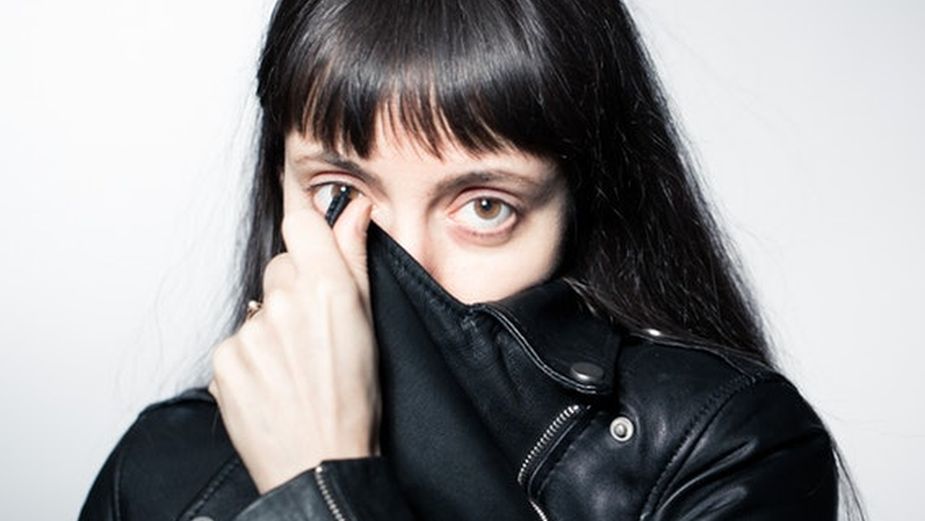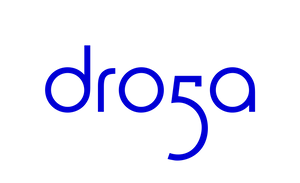
Production Line: Cutting the Fluff with Droga5’s Bianca Escobar

Bianca Escobar has been in production for over 20 years, having worked both on the production company and advertising sides of the business. She transitioned to the advertising world in 2010, starting out as an art producer at J. Walter Thompson in New York City. After joining Droga5 in 2015 as a senior art producer in 2015, she was elevated to associate director of art production, working on notable campaigns such as CoverGirl's ‘I Am What I Make Up’, Equinox's ‘Make Yourself a Gift to the World’ and Harley-Davidson's new brand identity and creative platform.
We were excited to get the opportunity to pick her brains on all things agency production, but with an art angle. Go check the interview below.
LBB> What lasting impact has the experience of the pandemic had on how you and Droga5 think about and approach production?
Bianca> This experience has taught us to focus our efforts on what truly is essential for shoots to happen. Productions have been more streamlined and to the point. We’ve had to cut the fluff and remove the grandiosity of things to concentrate on what is crucial and relevant. Once the pandemic is over, I think this sentiment will carry over. We will be more purposeful, deliberate with our production approach and get down to the basics.
LBB> Aside from Covid-19, what have been the most disruptive forces to hit agency production in the past few years?
Bianca> In my opinion, the one continuous disruptive force that keeps growing exponentially over the years is the constant demand for more content, but for less money, with shrinking timelines. The overall workloads keep growing as we need to deliver more layered and complex assets that feel integrated across the growing number of channels and platforms.
LBB> A good producer should be able to produce for any medium, from film to events to digital. Do you agree?
Bianca> Due to the nature of our work for film, say, we do lean heavily on the craft of TV commercial storytelling production - that is what we require from our film producers. And hopefully, our work speaks to that. For sure, we have producers that can straddle, and they are excellent, and they do lean toward art and interactive, and interactive and experiential. A few into film.
LBB> And leading on from that, when it comes to building up your team at Droga5, what’s your view on the balance of specialists vs generalists?
Bianca> At Droga5, we are heavy on the specialists with the top-line knowledge of a generalist. It’s a large group, and the asks and tasks are harder than ever before. Depending on the ask, we have always cast our team with the creative goal in mind. With art, film and interactive producers working together, the output is going to be pretty good. For me, I’m a specialist! I love my craft.
LBB> What’s your own pathway to production? When you started out, what sort of work were you producing and what lessons have stayed with you in that time?
Bianca> Before moving into the advertising side of production, I started out at a commercial production company and then later managed a photographer/director’s studio. Working closely with artists helped shape me as a producer with a creative eye and to be a creative problem-solver. I also started out when things were more analog back in the day. So I’m not always 100% reliant on technology or digital tools. It can be quite tiring doing everything on the computer or phone, and I find that I never lose stamina if I write things down with a pen and paper. So if you’re feeling stuck looking at a bid on the computer screen, print it out, and take notes on it. Sketch things out, or jot things down on a notebook to organise some thoughts!
LBB> There are so many models for the way production is organised in the advertising industry - what set-ups have you found to be the most successful and why?
Bianca> We think the model of an integrated production department with specialist producers works very well. We are able to efficiently cast a project and to maximise the potential within an idea. With such a thirst for volume, we concentrate on elevating and extending the idea as far as we can. Different perspectives can really bring an idea to life. We think it not only takes creative work to another level; it also has a real value proposition for our clients.
LBB> When working with a new partner or collaborator, how do you go about establishing trust?
Bianca> With transparency and empathy. Always. And now, even more than ever, because the pandemic created a commonality between everyone that goes beyond business. The business relationship now also has a concrete personal aspect because we all see and experience the fragility of our business and life.
LBB> What are your thoughts on the involvement of procurement in production?
Bianca> They’re helpful as a second pair of eyes when managing large projects with multiple vendors. They can pick up a detail a producer may have missed in the noise that is leading up to a production, as we’re often juggling a lot. Throughout the years, though, I think one side effect of having procurement involved is that the overall budget and fees have been driven down, while production has become more and more complex. Most of my experiences have been positive, and I find them to be good partners when they understand the nuances and subtleties of a production.
LBB> When it comes to educating producers how does Droga5 like to approach this?
Bianca> The film department has a rigorous, structured training program for its APs, whereas the art department is a smaller, tighter team that works closely together. It’s practically real-time training. As a whole, the production department is stringent on its ways of working - processes and fundamentals. Having this foundation allows us a certain freedom with our executions as well as with working with unknown talent.
LBB> What new skills have you had to add to the team as a result of the pandemic?
Bianca> Before the pandemic, it was rare to have a plan B prepared ahead of time in case a crisis hit a production. If we hit a big obstacle, we went with the flow and came up with a solution. Now, we’re learning crisis planning. We’re putting more due diligence into creating backup plans to the backup plans. We have to pivot quicker than ever before. We’re also becoming proficient in working remotely. We’ve had to learn how to work more efficiently from home, which means we had to perfect how we communicate, work and collaborate while being apart. And in conjunction with remote proficiency, we’ve had to be more tech savvy and figure out any tech troubleshooting on our own when IT is no longer in the same building.
LBB> Should production have a seat in the C-suite?
Bianca> Of course. The output of the agency is our final product. What it is and how we make it are hugely important. Having a voice at the C-suite level is vital if we are to have the tools and resources available to create the best work.
LBB> You’ve touched upon this but clients’ thirst for content seems to be unquenchable - and they need content that’s fast and responsive! What’s the key to creating LOTS of stuff at SPEED - without sacrificing production values? Is it even possible?
Bianca> What has defined Droga5 over the years is how we have consistently cared about the quality of execution of our work, making sure creative shines and leads, regardless of how big or small a project is. Each project is different, and we’ve done a good job so far of structuring and casting the right team of creatives, agency producers and production partners for each specific project. As producers, we’ve become quite good at finding production efficiencies and having an abundance of solutions up our sleeves.
LBB> What’s the most exciting thing about working in production right now?
Bianca> This past year, we’ve pulled off some amazing pieces of work despite all the challenges and not having agency or client representation on set during shoots. Agencies trust their production partners more than ever, and in turn, clients have placed even more trust in our capabilities. It’s refreshing to see everyone being more collaborative and patient with each other and even more exciting to have these successful productions while still wearing pajama pants.
LBB> And what advice would you give to an aspiring agency producer?
Bianca> It’s tough right now during the pandemic, because when you’re starting out, networking in person is key. For young producers, it is very hard to learn the trade from the comfort of your home. You need mentors and role models. You learn and pick up so much by osmosis when you’re surrounded by good producers who know the craft inside and out. Once things go back to normal, find your expanders, those who have produced work you yourself would have liked to have produced, and ask them questions about their process, and pick up as much knowledge from them as possible.













